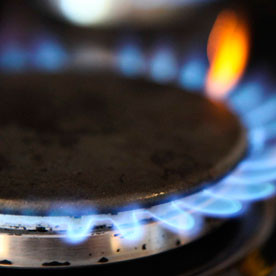Scottish Government reiterates call for social energy tariff

The Scottish Government has called on UK Government ministers to urgently deliver a targeted energy bill discount to protect customers in greatest need and drive down high fuel poverty rates.
The final report of the Social Tariff Working Group – comprising energy suppliers, consumer and fuel poverty groups and disabled people’s organisations – recommends targeted energy bill support to address the issue of unaffordable bills, plus a move beyond determining eligibility based on receipt of benefits.
The group concluded that support applied automatically to eligible households, using metrics based on a combination of household income, medical need and rurality would have a positive impact.
Acting climate action minister Alasdair Allan said: “High energy prices remain the single greatest driver of fuel poverty in Scotland, and we have taken various steps - within the limits of our devolved powers - aimed at raising household incomes and improving energy efficiency. We have reinstated the Winter Fuel Payment for pensioners; we have increased funding for Warmer Homes Scotland by £20 million, helping around 1,500 more households save on energy bills; and we have committed a further £20 million for the Scottish Welfare Fund to support the most vulnerable people.
“However, this is not enough to drive down stubbornly high fuel poverty rates and energy prices continue to rise. Targeted bill support is urgently needed to ensure that consumers are protected against high costs at source and can afford all their energy needs.
“We have worked very productively with energy providers and advice groups to come up with a deliverable scheme, and the final report demonstrates clear consensus on the way forward. However, the fundamental levers to make a difference are with the UK Government.
“Existing one-off flat rate rebates are insufficient and are not a long-term solution, and the UK Government must urgently deliver a unit rate discount, with the level of discount proportionate to need. The outputs from our group must act as a foundation and mainstay of a revised strategy, providing a signal of intent and leadership by the UK Government in tackling fuel poverty at source.”
The group considered fuel eligibility, consumer eligibility and data, level and form of support, and funding, as well as feedback from frontline advisers and campaigners.
Its conclusions differ from previous models which would have meant moving customers on to a different tariff, thereby removing them from the competitive market and from other means of saving money.
Andrew Bartlett, chief executive of Advice Direct Scotland, which has been campaigning for a UK-wide social energy tariff, said: “With energy bills remaining significantly high, reforms that protect vulnerable consumers from price shocks and increasing energy debt are urgently needed.
“The working group was a collaborative effort between suppliers and charities like Advice Direct Scotland.
“It is crucial for families across Scotland that energy becomes more affordable.
“We are here to support Scots who struggle with debt, energy bills and money worries. We look forward to hearing the response from the UK Government.”








